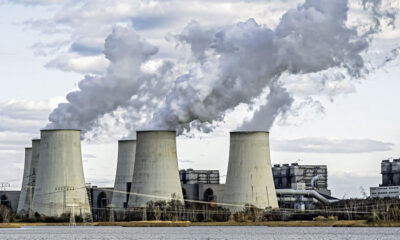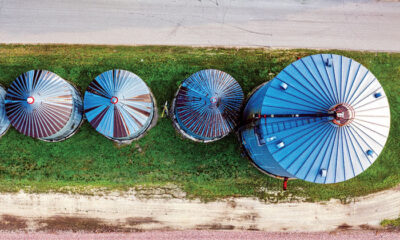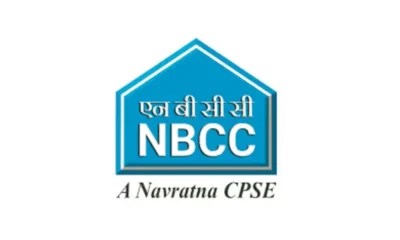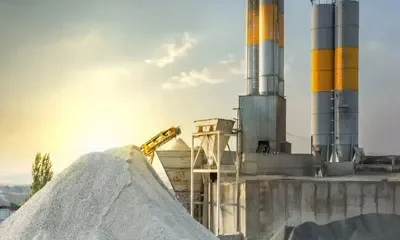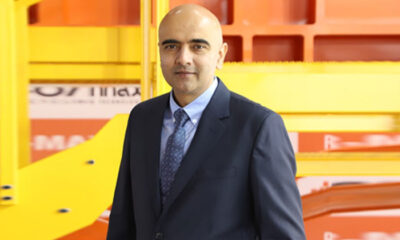Concrete
Decarbonisation is a focus for our R&D effort
Published
1 year agoon
By
admin
Dyanesh Wanjale, Managing Director, Gebr. Pfeiffer discusses the need to innovate grinding technologies to make the manufacturing process more efficient and less fuel consuming.
Gebr. Pfeiffer stands at the forefront of grinding technology, delivering energy-efficient and customised solutions for cement manufacturers worldwide. From pioneering vertical roller mills to integrating AI-driven optimisation, the company is committed to enhancing efficiency and sustainability. In this interview, we explore how their cutting-edge technology is shaping the future of cement production.
Can you tell us about the grinding technology your company offers and its role in the cement industry?
We are pioneers in grinding technology, with our company being based in Germany and having a rich history of over 160 years, a milestone we will celebrate in 2024. We are widely recognised as one of the most efficient grinding technology suppliers globally. Our MBR mills are designed with energy efficiency at their core, and for the past five years, we have been focused on continuous improvements in power consumption and reducing the CO2 footprint. Innovation is an ongoing process for us, as we strive to enhance efficiency while supporting the cement industry’s sustainability goals. Our technology plays a critical role in helping manufacturers reduce their environmental impact while improving productivity.
The use of alternative fuels and raw materials (AFR) is an ever-evolving area in cement production. How does your technology adapt to these changes?
Our vertical roller mills are specifically designed to adapt to the use of alternative fuels and raw materials. These mills are energy-efficient, which is a key advantage when working with AFR since alternative fuels often generate less energy. By consuming less power, our technology helps bridge this gap effectively. Our solutions ensure that the use of AFR does not compromise the operational efficiency or productivity of cement plants. This adaptability positions our technology as a vital asset in the industry’s journey toward sustainability.
What are some of the challenges your company faces, both in the Indian and global cement industries?
One of the major challenges we face is the demand for expedited deliveries. While customers often take time to decide on placing orders, once the decision is made, they expect quick deliveries. However, our industry deals with heavy and highly customised machinery that cannot be produced off the shelf. Each piece of equipment is made-to-order based on the client’s unique requirements, which inherently requires time for manufacturing.
Another significant challenge comes from competition with Chinese suppliers. While the Indian cement industry traditionally favoured our technology over Chinese alternatives, a few customers have started exploring Chinese vertical roller mills. This is concerning because our German technology offers unmatched quality and longevity. For example, our mills are designed to last over 30 years, providing a long-term solution for customers. In contrast, Chinese equipment often does not offer the same durability or reliability. Despite the cost pressures, we firmly believe that our technology provides superior value in the long run.
You mentioned that your machinery is made-to-order. Can you elaborate on how you customise equipment to meet the specific requirements of different cement plants?
Absolutely. Every piece of machinery we produce is tailored to the specific needs of the customer. While we have standard mill sizes to cater to different capacity requirements, the components and configurations are customised based on the client’s operational parameters and budget. This process ensures that our solutions deliver optimal performance and cost efficiency. Since these are heavy and expensive items, maintaining an inventory of pre-made equipment is neither practical nor economical. By adopting a made-to-order approach, we ensure that our customers receive machinery that precisely meets their needs.
The cement industry is focusing not only on increasing production but also on decarbonising operations. How does your company contribute to this dual objective, and how do you see this evolving in the future?
Decarbonisation is a key focus for our research and development efforts. We are continuously working on innovative solutions to reduce CO2 emissions and improve overall sustainability. For example, we have significantly reduced water consumption in our processes, which was previously used extensively for stabilisation. Additionally, we are leveraging artificial intelligence to optimise mill operations. AI enables us to monitor the process in real-time, analyse feedback, and make adjustments to achieve optimal results within the given parameters.
Our commitment to innovation ensures that we are not only helping the industry decarbonise but also making operations more efficient. As the cement industry moves toward stricter sustainability goals, we are confident that our technology will play a pivotal role in achieving them.
Can you provide more details about the use of digitalisation and artificial intelligence in your processes? How does this improve your operations and benefit your customers?
Digitalisation and AI are integral to our operations, enabling us to offer advanced monitoring and optimisation solutions. We have developed three distinct models that allow customers to monitor mill performance through their computer systems. Additionally, our technology enables real-time feedback from our German headquarters to the customer. This feedback highlights any inefficiencies, such as when a parameter is outside the optimal range,
and provides actionable recommendations to address them.
By continuously monitoring every parameter in real time, our AI-driven systems ensure that mills operate at peak efficiency. This not only enhances production but also minimises downtime. I am proud to say that our mills have the lowest shutdown rates compared to other manufacturers. This reliability, combined with the insights provided by our digital solutions, ensures that customers achieve consistent and efficient operations. It’s a game-changer for reducing costs and enhancing overall productivity.
Concrete
FORNNAX Appoints Dieter Jerschl as Sales Partner for Central Europe
Published
2 weeks agoon
February 5, 2026By
admin
FORNNAX TECHNOLOGY has appointed industry veteran Dieter Jerschl as its new sales partner in Germany to strengthen its presence across Central Europe. The partnership aims to accelerate the adoption of FORNNAX’s high-capacity, sustainable recycling solutions while building long-term regional capabilities.
FORNNAX TECHNOLOGY, one of the leading advanced recycling equipment manufacturers, has announced the appointment of a new sales partner in Germany as part of its strategic expansion into Central Europe. The company has entered into a collaborative agreement with Mr. Dieter Jerschl, a seasoned industry professional with over 20 years of experience in the shredding and recycling sector, to represent and promote FORNNAX’s solutions across key European markets.
Mr. Jerschl brings extensive expertise from his work with renowned companies such as BHS, Eldan, Vecoplan, and others. Over the course of his career, he has successfully led the deployment of both single machines and complete turnkey installations for a wide range of applications, including tyre recycling, cable recycling, municipal solid waste, e-waste, and industrial waste processing.
Speaking about the partnership, Mr. Jerschl said,
“I’ve known FORNNAX for over a decade and have followed their growth closely. What attracted me to this collaboration is their state-of-the-art & high-capacity technology, it is powerful, sustainable, and economically viable. There is great potential to introduce FORNNAX’s innovative systems to more markets across Europe, and I am excited to be part of that journey.”
The partnership will primarily focus on Central Europe, including Germany, Austria, and neighbouring countries, with the flexibility to extend the geographical scope based on project requirements and mutual agreement. The collaboration is structured to evolve over time, with performance-driven expansion and ongoing strategic discussions with FORNNAX’s management. The immediate priority is to build a strong project pipeline and enhance FORNNAX’s brand presence across the region.
FORNNAX’s portfolio of high-performance shredding and pre-processing solutions is well aligned with Europe’s growing demand for sustainable and efficient waste treatment technologies. By partnering with Mr. Jerschl—who brings deep market insight and established industry relationships—FORNNAX aims to accelerate adoption of its solutions and participate in upcoming recycling projects across the region.
As part of the partnership, Mr. Jerschl will also deliver value-added services, including equipment installation, maintenance, and spare parts support through a dedicated technical team. This local service capability is expected to ensure faster project execution, minimise downtime, and enhance overall customer experience.
Commenting on the long-term vision, Mr. Jerschl added,
“We are committed to increasing market awareness and establishing new reference projects across the region. My goal is not only to generate business but to lay the foundation for long-term growth. Ideally, we aim to establish a dedicated FORNNAX legal entity or operational site in Germany over the next five to ten years.”
For FORNNAX, this partnership aligns closely with its global strategy of expanding into key markets through strong regional representation. The company believes that local partnerships are critical for navigating complex market dynamics and delivering solutions tailored to region-specific waste management challenges.
“We see tremendous potential in the Central European market,” said Mr. Jignesh Kundaria, Director and CEO of FORNNAX.
“Partnering with someone as experienced and well-established as Mr. Jerschl gives us a strong foothold and allows us to better serve our customers. This marks a major milestone in our efforts to promote reliable, efficient and future-ready recycling solutions globally,” he added.
This collaboration further strengthens FORNNAX’s commitment to environmental stewardship, innovation, and sustainable waste management, supporting the transition toward a greener and more circular future.
Concrete
Budget 2026–27 infra thrust and CCUS outlay to lift cement sector outlook
Published
2 weeks agoon
February 2, 2026By
admin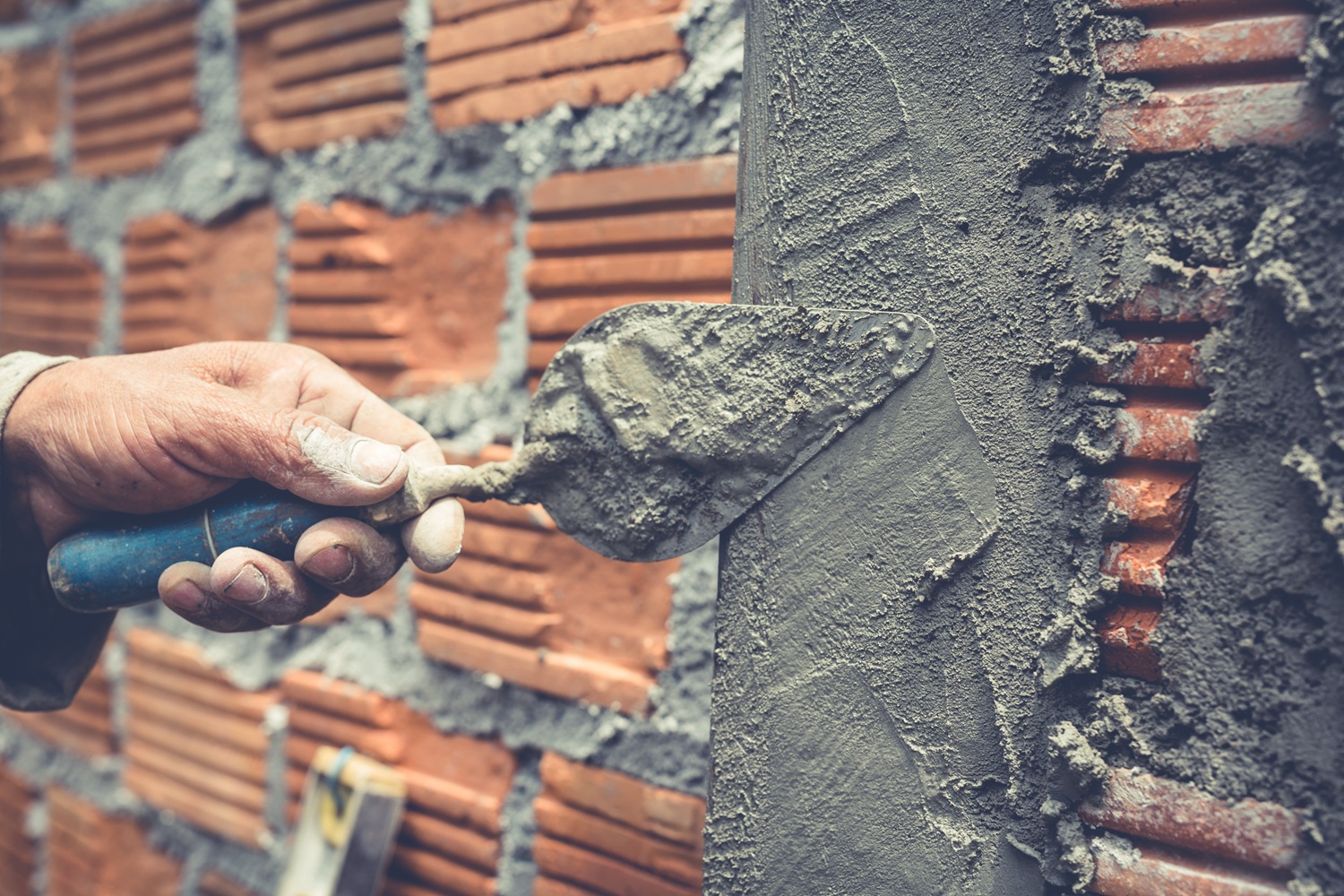
Higher capex, city-led growth and CCUS funding improve demand visibility and decarbonisation prospects for cement
Mumbai
Cement manufacturers have welcomed the Union Budget 2026–27’s strong infrastructure thrust, with public capital expenditure increased to Rs 12.2 trillion, saying it reinforces infrastructure as the central engine of economic growth and strengthens medium-term prospects for the cement sector. In a statement, the Cement Manufacturers’ Association (CMA) has welcomed the Union budget 2026-27 for reinforcing the ambitions for the nation’s growth balancing the aspirations of the people through inclusivity inspired by the vision of Narendra Modi, Prime Minister of India, for a Viksit Bharat by 2047 and Atmanirbharta.
The budget underscores India’s steady economic trajectory over the past 12 years, marked by fiscal discipline, sustained growth and moderate inflation, and offers strong demand visibility for infrastructure linked sectors such as cement.
The Budget’s strong infrastructure push, with public capital expenditure rising from Rs 11.2 trillion in fiscal year 2025–26 to Rs 12.2 trillion in fiscal year 2026–27, recognises infrastructure as the primary anchor for economic growth creating positive prospects for the Indian cement industry and improving long term visibility for the cement sector. The emphasis on Tier 2 and Tier 3 cities with populations above 5 lakh and the creation of City Economic Regions (CERs) with an allocation of Rs 50 billion per CER over five years, should accelerate construction activity across housing, transport and urban services, supporting broad based cement consumption.
Logistics and connectivity measures announced in the budget are particularly significant for the cement industry. The announcement of new dedicated freight corridors, the operationalisation of 20 additional National Waterways over the next five years, the launch of the Coastal Cargo Promotion Scheme to raise the modal share of waterways and coastal shipping from 6 per cent to 12 per cent by 2047, and the development of ship repair ecosystems should enhance multimodal freight efficiency, reduce logistics costs and improve the sector’s carbon footprint. The announcement of seven high speed rail corridors as growth corridors can be expected to further stimulate regional development and construction demand.
Commenting on the budget, Parth Jindal, President, Cement Manufacturers’ Association (CMA), said, “As India advances towards a Viksit Bharat, the three kartavya articulated in the Union Budget provide a clear context for the Nation’s growth and aspirations, combining economic momentum with capacity building and inclusive progress. The Cement Manufacturers’ Association (CMA) appreciates the Union Budget 2026-27 for the continued emphasis on manufacturing competitiveness, urban development and infrastructure modernisation, supported by over 350 reforms spanning GST simplification, labour codes, quality control rationalisation and coordinated deregulation with States. These reforms, alongside the Budget’s focus on Youth Power and domestic manufacturing capacity under Atmanirbharta, stand to strengthen the investment environment for capital intensive sectors such as Cement. The Union Budget 2026-27 reflects the Government’s focus on infrastructure led development emerging as a structural pillar of India’s growth strategy.”
He added, “The Rs 200 billion CCUS outlay for various sectors, including Cement, fundamentally alters the decarbonisation landscape for India’s emissions intensive industries. CCUS is a significant enabler for large scale decarbonisation of industries such as Cement and this intervention directly addresses the technology and cost requirements of the Cement sector in context. The Cement Industry, fully aligned with the Government of India’s Net Zero commitment by 2070, views this support as critical to enabling the adoption and scale up of CCUS technologies while continuing to meet the Country’s long term infrastructure needs.”
Dr Raghavpat Singhania, Vice President, CMA, said, “The government’s sustained infrastructure push supports employment, regional development and stronger local supply chains. Cement manufacturing clusters act as economic anchors across regions, generating livelihoods in construction, logistics and allied sectors. The budget’s focus on inclusive growth, execution and system level enablers creates a supportive environment for responsible and efficient expansion offering opportunities for economic growth and lending momentum to the cement sector. The increase in public capex to Rs 12.2 trillion, the focus on Tier 2 and Tier 3 cities, and the creation of City Economic Regions stand to strengthen the growth of the cement sector. We welcome the budget’s emphasis on tourism, cultural and social infrastructure, which should broaden construction activity across regions. Investments in tourism facilities, heritage and Buddhist circuits, regional connectivity in Purvodaya and North Eastern States, and the strengthening of emergency and trauma care infrastructure in district hospitals reinforce the cement sector’s role in enabling inclusive growth.”
CMA also noted the Government’s continued commitment to fiscal discipline, with the fiscal deficit estimated at 4.3 per cent of GDP in FY27, reinforcing macroeconomic stability and investor confidence.
Concrete
Steel: Shielded or Strengthened?
CW explores the impact of pro-steel policies on construction and infrastructure and identifies gaps that need to be addressed.
Published
2 weeks agoon
January 31, 2026By
admin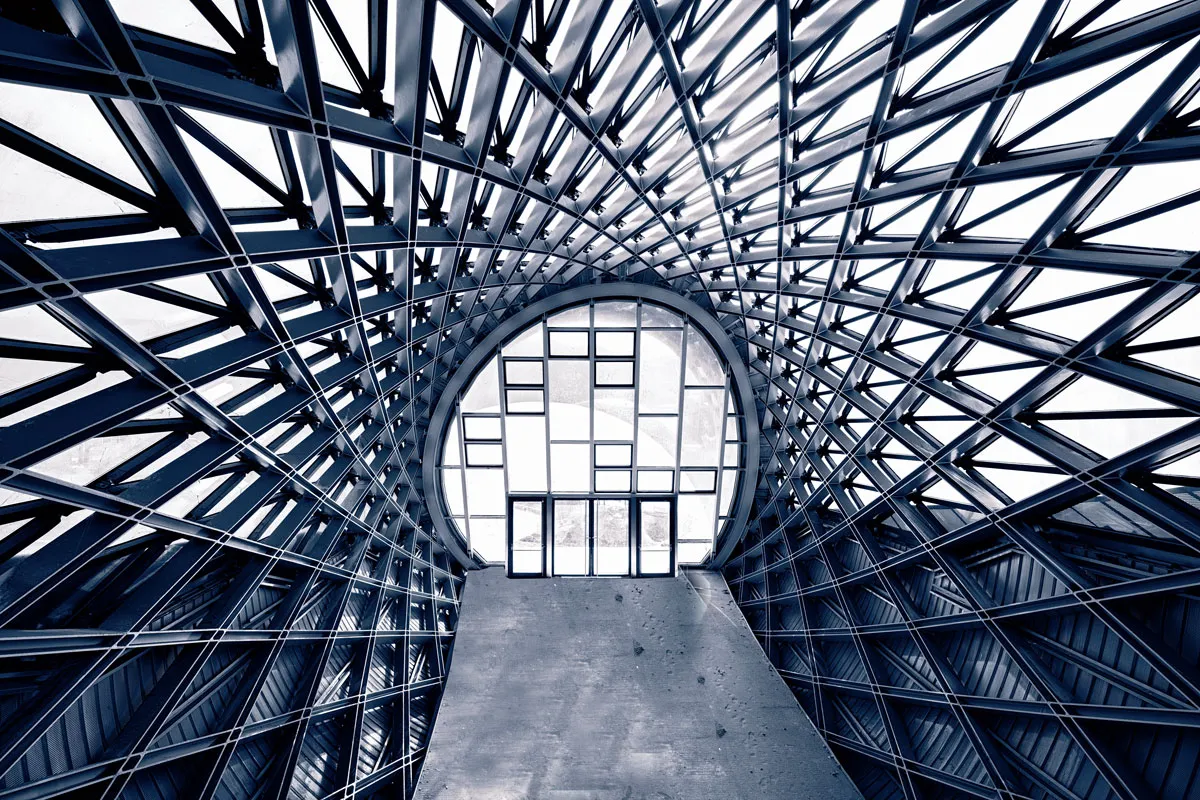
Going forward, domestic steel mills are targeting capacity expansion
of nearly 40 per cent through till FY31, adding 80-85 mt, translating
into an investment pipeline of $ 45-50 billion. So, Jhunjhunwala points
out that continuing the safeguard duty will be vital to prevent a surge
in imports and protect domestic prices from external shocks. While in
FY26, the industry operating profit per tonne is expected to hold at
around $ 108, similar to last year, the industry’s earnings must
meaningfully improve from hereon to sustain large-scale investments.
Else, domestic mills could experience a significant spike in industry
leverage levels over the medium term, increasing their vulnerability to
external macroeconomic shocks.(~$ 60/tonne) over the past one month,
compressing the import parity discount to ~$ 23-25/tonne from previous
highs of ~$ 70-90/tonne, adds Jhunjhunwala. With this, he says, “the
industry can expect high resistance to further steel price increases.”
Domestic HRC prices have increased by ~Rs 5,000/tonne
“Aggressive
capacity additions (~15 mt commissioned in FY25, with 5 mt more by
FY26) have created a supply overhang, temporarily outpacing demand
growth of ~11-12 mt,” he says…

FORNNAX Appoints Dieter Jerschl as Sales Partner for Central Europe

Budget 2026–27 infra thrust and CCUS outlay to lift cement sector outlook

Steel: Shielded or Strengthened?

JK Cement Commissions 3 MTPA Buxar Plant, Crosses 31 MTPA

JK Cement Crosses 31 MTPA Capacity with Commissioning of Buxar Plant in Bihar

FORNNAX Appoints Dieter Jerschl as Sales Partner for Central Europe

Budget 2026–27 infra thrust and CCUS outlay to lift cement sector outlook

Steel: Shielded or Strengthened?

JK Cement Commissions 3 MTPA Buxar Plant, Crosses 31 MTPA







